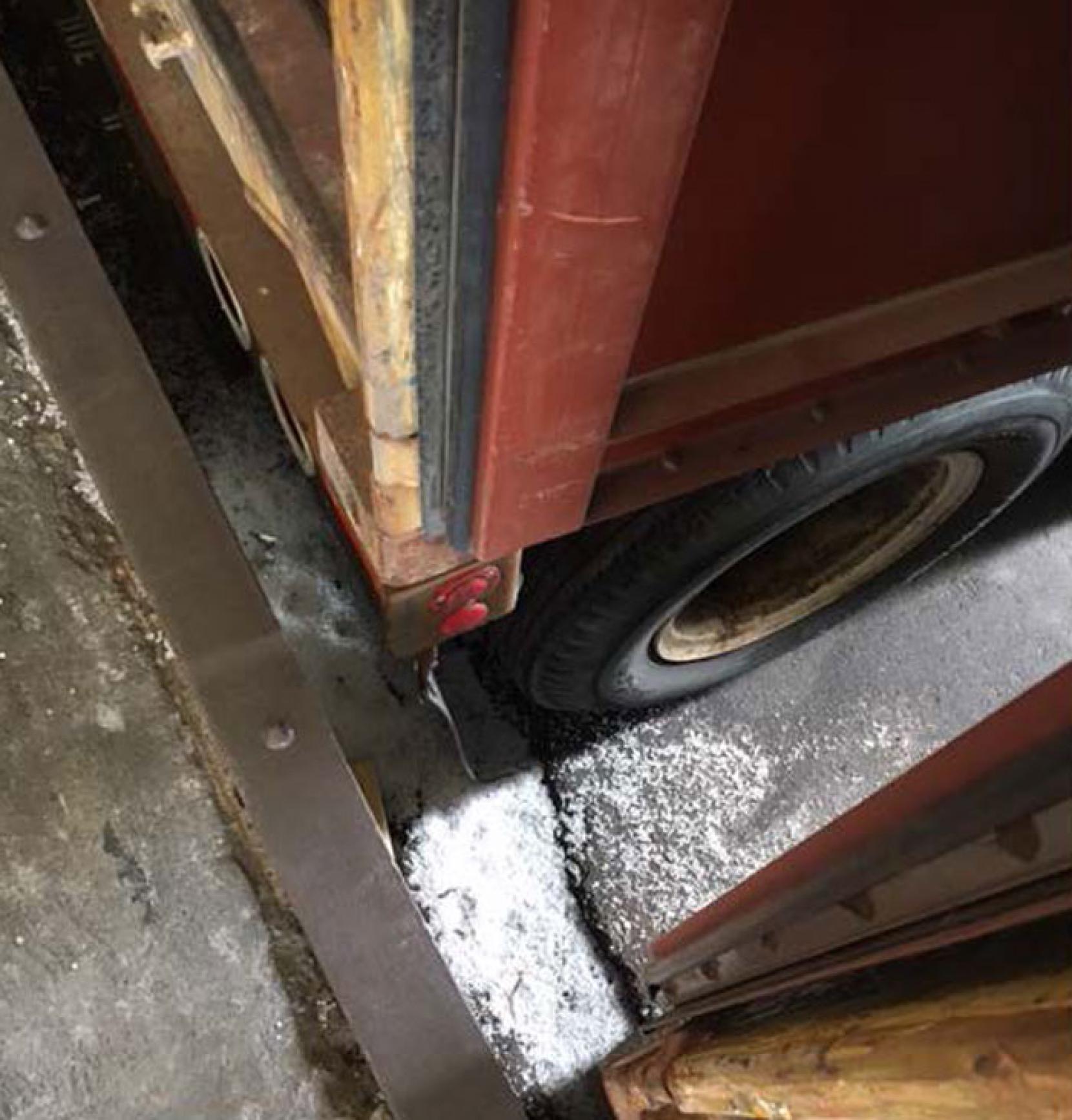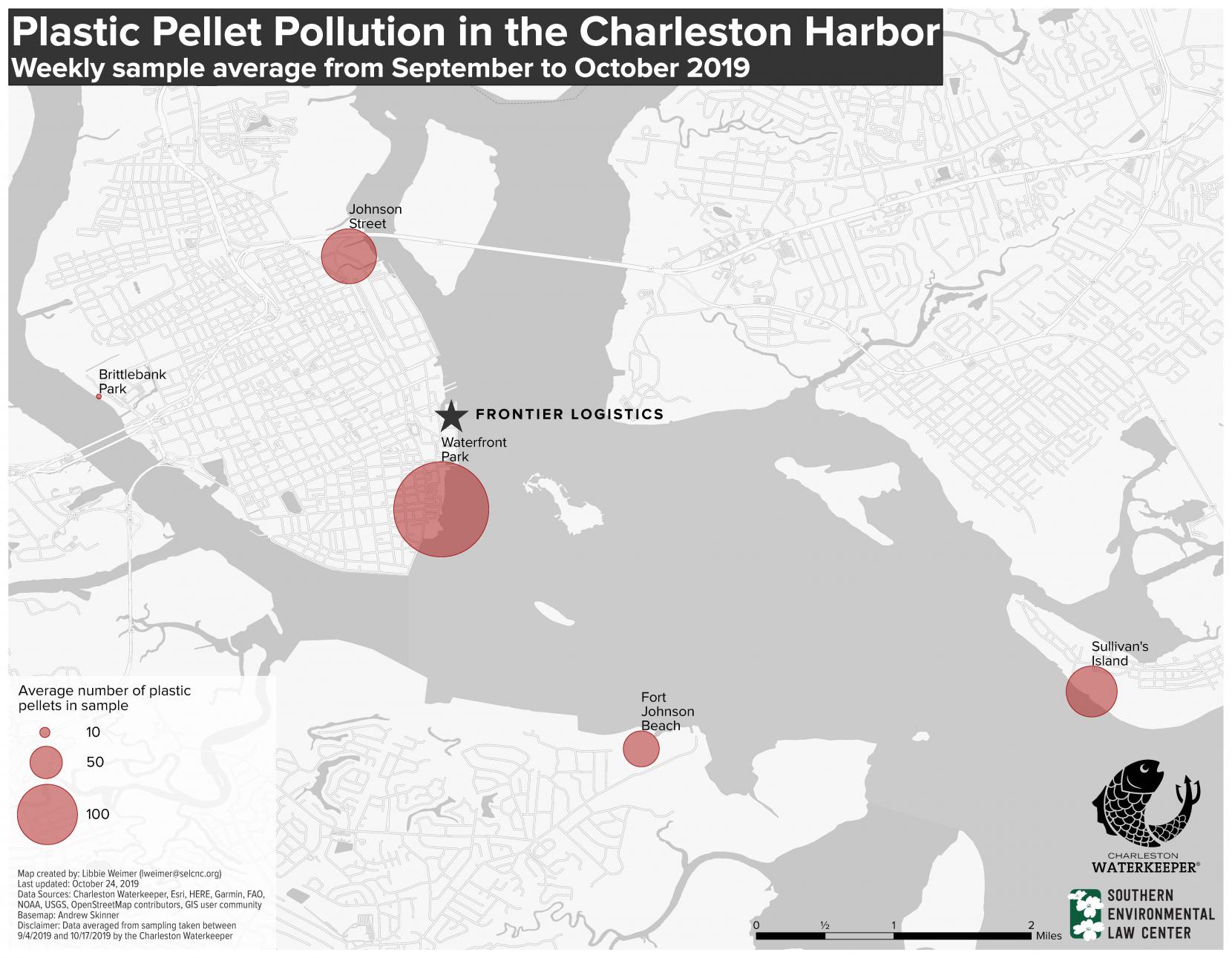Groups file lawsuit against Frontier Logistics over plastic pollution
Updated March 19, 2020:
After submitting the required notices, and without a satisfactory response from Frontier Logistics, SELC has filed a federal lawsuit against the plastic-pellet packager and shipper asserting that the company is responsible for ongoing pollution of the Charleston Harbor and other connected waters.
The suit was filed on behalf of the Charleston Waterkeeper and the Coastal Conservation League. The organizations are pursing federal remedies under the Clean Water Act and the Resources Conservation and Recovery Act for the discharges of plastic pellets into the Cooper River from the company’s operations at Union Pier.
SELC, the Waterkeeper, and the League made the decision to pursue this action because, as the lawsuit lays out, neither Frontier nor any enforcement agency has taken effective steps to end the pollution.
For additional details, click here to read the press release.
Original story posted October 28, 2019:
South Carolina environmental officials have said a July spill of plastic pellets from a local packaging company that littered beaches for miles was a one-time accident, but an investigation by the Charleston Waterkeeper shows the pollution is ongoing.
Detailed data collection from Charleston Waterkeeper Andrew Wunderley revealed that the pellet spills are likely routine. That is the basis of SELC’s notice of intent to sue under the federal Clean Water Act. The notice was sent Monday to Frontier Logistics, the South Carolina Department of Health and Environmental Control, or DHEC, and the Environmetal Protection Agency.
Wunderley and his small staff combed beaches and slogged through marshes for months to meticulously document the scope of the pollution.
“We have evidence that leads us to believe Frontier’s plastic pellets continue to spill into our harbor,” Wunderley said. “We find pellets everywhere we look, from Capers Island to Waterfront Park downtown. And, at the sites we sample week after week, we continue to find consistently high numbers of pellets. Frontier must be held accountable for polluting our harbor, beaches, and waterways with its plastic pellets, especially when we have no state or local safeguards protecting our waterways from plastic pellet pollution.”
SELC, the Charleston Waterkeeper, and the Coastal Conservation League revealed the findings of Wunderley’s investigation and announced their intention to sue at a news conference in Charleston on Monday, just steps away from where the Waterkeeper has found the highest concentrations of plastic pellets.

Plastic pellets litter the ground near a truck loading bay in Charleston.
At the news conference, Wunderley and Coastal Conservation League Executive Director Laura Cantral presented photographs taken at the Frontier Logistics facility showing pellets scattered all over the property. The photographs were taken by investigators looking for the source of the pellet pollution reported on local shores. The Frontier Logistics facility, where pellets are transferred from rail cars to oceangoing containers, is located on a pier directly over the Cooper River.
The photographs were obtained under South Carolina’s open-records law.
“It was our hope that DHEC would hold Frontier accountable for this pollution, but that does not appear to be the case,” Cantral said at the news conference. “Fortunately, the Clean Water Act allows private citizens to bring a lawsuit when a state agency like DHEC has not – or will not – protect our iconic waterways.”
DHEC, the state’s environmental agency, has not imposed any fines or other punishment on the pellet shipper.
After the spill, Frontier noted in records that it had voluntarily installed silt fencing and other measures to keep the pellets from getting into the river. However, an expert in pellet-source controls, Dr. Aiza Jose, told SELC those measures were likely insufficient to prevent ongoing spills.
The pellets, sometimes called “nurdles,” are shipped from Charleston to factories around the world, where they are melted and reformed into common plastic products. In the water, they resemble fish eggs and are harmful to aquatic life.
“We are proud to work with the Charleston Waterkeeper and the Coastal Conservation League, who are stepping up to enforce our environmental laws when the state has not,” said SELC Senior Attorney Catherine Wannamaker. “Our sampling demonstrates just how widespread and ongoing this plastic pollution problem is, so we are taking action to protect this iconic harbor and river.”
Earlier this year in a similar case, a federal judge in Texas found a pellet manufacturer liable for polluting nearby waters with these same plastic pellets.

